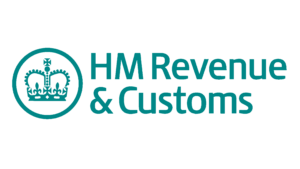Introduction: Guide to Registering Trust Declarations
Trust Declarations play a crucial role in property ownership, providing individuals with tax-saving benefits and financial flexibility. However, it is essential to understand the registration requirements associated with Trust Declarations to comply with legal obligations and avoid penalties.
In this blog post, we will delve into the process of registering Trust Declarations, the types of declarations that need to be registered with HMRC, and the importance of compliance.
Here is your Guide to Registering Trust Declarations.
Which Trust Declarations Must be Registered with HMRC?

To maintain transparency and adhere to Anti Money Laundering Regulations, HMRC requires the registration of all Trust Declarations for sole-owned properties. It is essential to note that HMRC are the Government Organisation that maintains the register, but registration is totally unrelated to tax matters.
The Significance of Registration:
Registration is a vital step to ensure compliance with Anti Money Laundering Regulations. When a beneficiary receives rental income through a Trust Declaration for a sole-owned property, they are not listed as a registered owner at Land Registry. By registering the Trust Declaration, you fulfil legal obligations and uphold transparency in rental property income transactions.
Recent Changes in Registration Requirements:
While certain types of Trusts have been subject to registration for several years, HMRC provided further clarity on the types of Trusts requiring registration in July 2022. This clarification explicitly included Trust Declarations for sole-owned properties. It is crucial to stay informed about such changes to meet the registration requirements.
Registration Deadline and Encouragement:
The initial registration deadline was set for September 1st, 2022. However, considering the significant number of unregistered Trust Declarations, HMRC acknowledges the need for increased awareness and actively encourages registration.
It is advisable to complete the registration process promptly to ensure compliance.
Timeframe for Registering Trust Declarations:
If you have recently agreed upon a Trust Declaration for tax-saving purposes, it is essential to note that registration must occur within 90 days of signing the document. Adhering to this timeframe ensures that you meet the legal obligations associated with Trust Declaration registration.
Penalties for Non-Registration:
Failure to register a Trust Declaration can result in a fixed penalty fine of £5000, as indicated by HMRC.
To avoid unnecessary penalties and legal complications, it is imperative to prioritise the registration process and comply with the regulations.
Completing the Registration Process:
The responsibility for registering Trust Declarations lies with the property owner. Registering involves creating an Organisation Government Gateway account since personal Government Gateways cannot be used for this purpose.
Overview of the information required during the registration process:
- Personal details of the Trustee, Settlor, and Beneficiary
- Confirmation of the Trust’s tax status and whether it possesses a Trust UTR
- Indication of any assets owned by the Trust
- Disclosure of any Protectors or other individuals involved in Trust management
- Caution and accuracy are paramount when completing the registration process
- Ensure that you provide correct and up-to-date information to HMRC during registration, as any discrepancies may lead to complications
Conclusion:
Registering Trust Declarations for sole-owned properties is a crucial step to comply with Anti Money Laundering Regulations and maintain transparency in property ownership.
Understanding the registration process, adhering to the deadlines, and providing accurate information are essential for avoiding penalties and ensuring compliance.
By fulfilling these requirements, property owners can enjoy the benefits of Trust Declarations while staying within the legal framework.
What you get:
- We guide you through the Trust Registration process
- We register the Trust and supply confirmation that registration has been completed
- We take the hassle out of this process
